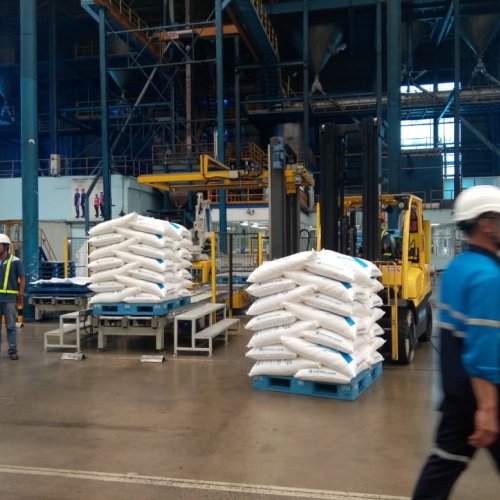As an aspiring Managing Director who has successfully cleared the written examination for a sugar cooperative in Maharashtra, you’re now preparing for the crucial personal interview with the Selection Committee headed by the Commissioner of Sugar. This interview is your opportunity to demonstrate your comprehensive understanding of the sugar industry, your leadership capabilities, and your vision for managing a cooperative sugar factory. Here’s what you need to know to meet the high expectations set for this role.
1. Understanding of Sugar Plant Operations
The Commissioner will expect you to have a thorough understanding of sugar plant operations, including:
a) Minimum Feasible Capacity: You should be able to discuss the minimum feasible capacity for a sugar plant, which is generally considered to be around 2,500 TCD (tonnes of cane per day). Be prepared to explain the factors that influence this capacity, such as sugarcane availability, market demand, and financial viability.
b) Production Cost Reduction: The Selection Committee will be interested in your strategies for reducing production costs for both sugar and byproducts. Be prepared to discuss approaches such as:
– Improving extraction efficiency
– Enhancing byproduct utilization
– Negotiating better procurement terms
– Process optimization
– Quality control
– Staff training and development
– Effective water management
2. Project Management and Expansion
As an MD, you’ll be expected to lead expansion projects and set up new byproduct facilities. The Selection Committee will want to know your approach to such initiatives:
a) Feasibility Studies: Explain how you would conduct comprehensive feasibility studies, including technical, financial, and environmental assessments.
b) Market Analysis: Demonstrate your understanding of the importance of evaluating current and projected demand, competition, and market positioning.
c) Resource Assessment: Discuss how you would assess the availability of raw materials, infrastructure requirements, and potential risks.
d) Benefit Analysis: Explain your approach to quantifying expected benefits in terms of revenue, market share, and operational efficiency.
3. Human Resource Management
Effective human resource management is crucial for the success of a sugar cooperative. Be prepared to discuss:
a) Staffing Pattern: Show your understanding of the Commissioner of Sugar Staffing Pattern and how you would optimize the total manpower to ensure efficient operations while maintaining cost-effectiveness.
b) New Employee Integration: Explain your strategy for channelizing newly joining employees, including comprehensive induction programs, mentorship, role clarification, and cultural assimilation.
c) Employee Encouragement: Discuss your approach to motivating and encouraging employees, including recognition programs, skill development, career progression opportunities, and work-life balance initiatives.
d) Handling Workers’ Unrest: Demonstrate your ability to handle potential workers’ unrest through active listening, prompt grievance addressing, fostering a positive work environment, and improving communication channels.
4. Financial Management
The Selection Committee will expect you to have a strong grasp of financial management in the sugar industry:
a) Cost Reduction: Be prepared to discuss strategies for reducing costs in various areas, including:
– Harvest and Transport (H&T) costs
– Production costs
– Finance costs
b) Working Capital Management: Explain your approach to efficient working capital management, including inventory optimization, accounts receivable management, and cash flow forecasting.
c) Financing Options: Demonstrate your knowledge of various financing options, including government subsidies, cooperative banking, and green financing.
5. Compliance and Certifications
As an MD, you’ll be responsible for ensuring compliance with various regulations and obtaining necessary certifications:
a) Statutory Compliances: Show your understanding of the various statutory compliances that a sugar factory must follow, including labor laws, environmental regulations, tax norms, and industry-specific regulations.
b) Certifications: Explain the importance of certifications like ISO, FSSAI, Bonsucro, and environmental certifications. Discuss how these certifications contribute to quality assurance, market access, and sustainability.
c) Cooperative Acts: Demonstrate your knowledge of cooperative acts, including governance structure, membership rules, financial management regulations, and dispute resolution mechanisms.
6. Stakeholder Management
Effective stakeholder management is crucial for the success of a cooperative sugar factory:
a) Board of Directors: Explain your approach to dealing with the Board of Directors, including transparent communication, aligning goals with the board’s vision, and leveraging their expertise.
b) Farmers’ Welfare: Discuss your plans for ensuring farmers’ welfare, including fair pricing, training and support, financial assistance, and infrastructure development.
c) Community Engagement: Explain how you would engage with the local community and contribute to rural development.
7. Innovation and Sustainability
The Selection Committee will be interested in your vision for innovation and sustainability in the sugar industry:
a) Technology Adoption: Discuss your approach to adopting new technologies and implementing automation to improve efficiency and reduce costs.
b) Sustainability Practices: Explain your strategies for implementing sustainable practices, including eco-friendly production methods, renewable energy adoption, and water conservation.
c) Research and Development: Discuss your plans for investing in R&D and collaborating with research institutions to drive innovation in the industry.
8. Marketing and Reputation Management
As an MD, you’ll be responsible for enhancing the reputation of your factory and ensuring strong market positioning:
a) Quality Assurance: Explain your approach to maintaining high product quality and obtaining relevant certifications.
b) Marketing Strategies: Discuss your marketing strategies for sugar and byproducts, including exploring new markets and applications.
c) Crisis Management: Demonstrate your ability to handle potential crises and maintain the factory’s reputation.
9. Leadership and Vision
The Selection Committee will be looking for strong leadership qualities and a clear vision for the future:
a) Strategic Planning: Explain your approach to strategic planning and goal setting for the cooperative.
b) Change Management: Discuss how you would lead change initiatives and drive continuous improvement in the organization.
c) Ethical Leadership: Demonstrate your commitment to ethical leadership and transparent operations.
10. Industry Knowledge and Current Affairs
Show your deep understanding of the sugar industry and current affairs:
a) Market Trends: Discuss current trends in the sugar market, both domestic and international.
b) Government Policies: Show your awareness of government policies affecting the sugar industry and how you would navigate these regulations.
c) Future Outlook: Share your perspective on the future of the sugar industry and how you would position your cooperative for long-term success.
11. Personal Qualities and Soft Skills
While technical knowledge is crucial, the Selection Committee will also be evaluating your personal qualities and soft skills:
a) Communication Skills: Demonstrate your ability to articulate complex ideas clearly and concisely.
b) Problem-Solving Abilities: Show your analytical thinking and problem-solving skills through examples from your experience or hypothetical scenarios.
c) Adaptability: Highlight your ability to adapt to changing circumstances and lead in uncertain environments.
d) Emotional Intelligence: Demonstrate your emotional intelligence, particularly in handling conflicts and motivating teams.
12. Practical Experience and Case Studies
Be prepared to discuss practical experiences or case studies that demonstrate your capabilities:
a) Success Stories: Share examples of successful projects or initiatives you’ve led in the past.
b) Lessons Learned: Discuss challenges you’ve faced and how you’ve overcome them, highlighting the lessons learned.
c) Industry Benchmarks: Show your awareness of industry benchmarks and how you would strive to meet or exceed them.
13. Cooperative vs. Private Sector
Given that you’re applying for a role in a cooperative sugar factory, be prepared to discuss:
a) Reasons for Choosing Cooperative Sector: Explain why you prefer to work in the cooperative sector over the private sector, highlighting the unique challenges and opportunities it presents.
b) Balancing Business and Social Goals: Discuss how you would balance business objectives with the social responsibilities of a cooperative.
c) Farmer-Centric Approach: Demonstrate your understanding of the farmer-centric nature of cooperatives and how you would ensure that farmers’ interests are protected.
14. First 100 Days Plan
The Commissioner may be interested in your plans for the initial period after taking charge:
a) Immediate Actions: Discuss the actions you would take on your first day and in the first week as MD.
b) Short-Term Goals: Outline your goals for the first 30, 60, and 90 days.
c) Stakeholder Engagement: Explain how you would engage with various stakeholders, including the Board, employees, farmers, and the local community, in your initial days.
15. Continuous Learning and Development
Show your commitment to continuous learning and development:
a) Industry Updates: Explain how you stay updated with the latest developments in the sugar industry.
b) Skill Enhancement: Discuss your approach to continuously enhancing your skills and knowledge.
c) Team Development: Explain how you would foster a culture of learning and development within the organization.
Conclusion:
The personal interview with the Selection Committee headed by the Commissioner of Sugar, Maharashtra, is your opportunity to demonstrate that you’re not just knowledgeable about the sugar industry, but also possess the leadership qualities, vision, and practical skills necessary to successfully manage a cooperative sugar factory. Be prepared to discuss a wide range of topics, from technical aspects of sugar production to strategic management and stakeholder engagement.
Remember, the Selection Committee will be looking for candidates who can balance the business objectives of the cooperative with its social responsibilities, drive innovation and sustainability, and navigate the complex regulatory environment of the sugar industry. Your responses should reflect a deep understanding of the cooperative model, a farmer-centric approach, and a commitment to ethical and transparent leadership.
Approach the interview with confidence, drawing on your knowledge, experience, and vision for the future of the sugar industry. Be ready to provide specific examples and practical solutions to demonstrate your capabilities. With thorough preparation and a clear articulation of your ideas, you can position yourself as a strong candidate for the role of Managing Director in a cooperative sugar factory.
Disclaimer: The views and opinions expressed in the article by Dilip Patil, Managing Director of Samarth SSK Ltd., are solely his own.











